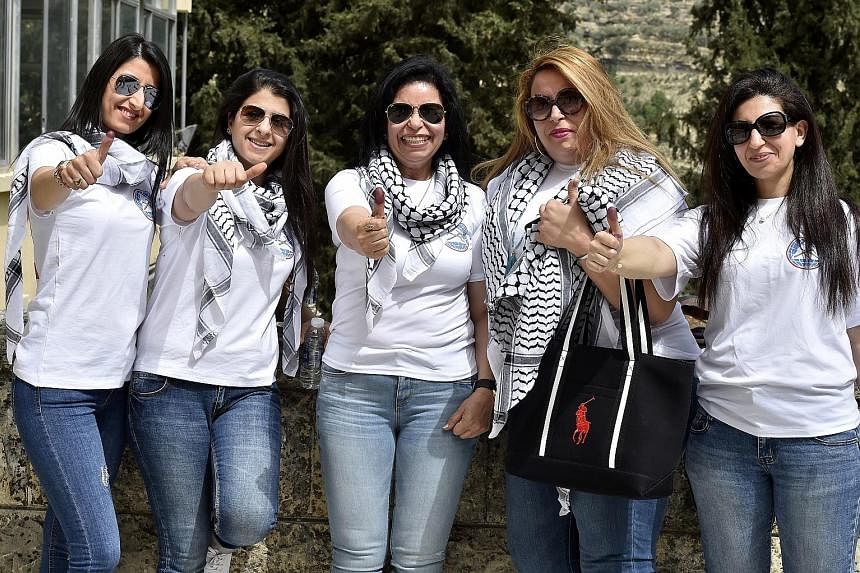BEIRUT • Voters queued outside polling stations across Lebanon yesterday for the chance to take part in its first general election in nine years - an event seen as important for economic stability but unlikely to upset the overall balance of power.
The election is being held under a new proportional system that has confused some voters and made the contest unpredictable in formerly safe seats, but still preserves the country's sectarian power sharing system.
Under the power-sharing agreement that ended the civil war, Lebanon's prime minister must be a Sunni Muslim, the president a Maronite Christian and parliamentary Speaker a Shi'ite Muslim.
Whatever the result, another coalition government, including most of the major parties, like that which has governed since 2016, is likely to be formed after the election, analysts have said.
Getting the new government in place quickly would reassure investors of Lebanon's economic stability. It has one of the world's highest debt-to-GDP ratios and the International Monetary Fund has warned that its fiscal trajectory is unsustainable.
"We hope we will open a new era," said Mr Mahmoud Daouk, voting in Beirut.
More than 3.7 million Lebanese are eligible to vote, and will choose from 597 candidates who are running on 77 closed lists for a seat in the 128-strong Parliament.
Voting was scheduled to end at 7pm local time, with unofficial results expected to start coming in overnight.
Analysts are closely watching the performance of Sunni Muslim Prime Minister Saad al-Hariri's Future Movement party and that of the Iran-backed, Shi'ite Hizbollah group and its allies.
Along with its partners, Hizbollah could win a third of the 128 seats, giving it the "power to block decisions", said Ms Rosanna Bou Monsef, a political commentator for the An-Nahar daily. Still, Hizbollah's leaders might downplay electoral successes that could "drive investors away", she said.
Lebanon has periodically been an arena for the intense regional competition between Iran and Saudi Arabia.But in recent years, Riyadh has pulled back from its previous support for Mr Hariri, backing that helped Future in 2009, when it was part of the "March 14" coalition focused on making Hizbollah give up its massive arsenal.
That issue has been quietly shelved as the main parties have focused on getting the economy back on track and grappling with the Syrian refugee crisis.
Donors pledged US$11 billion (S$14.7 billion) in soft loans for a capital investment programme last month in return for fiscal and other reforms, and they hope to hold the first follow-up meeting with the new government in the coming weeks.
REUTERS, BLOOMBERG

